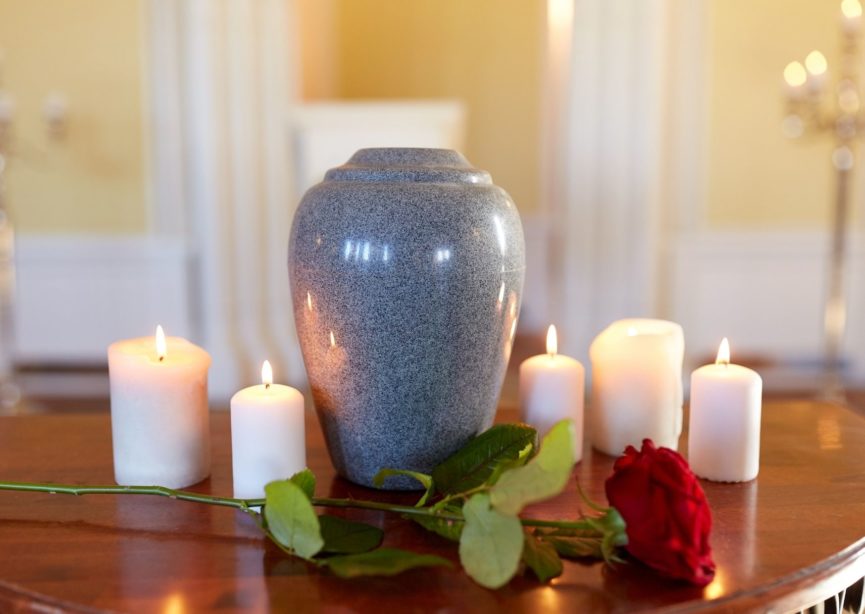What is anticipatory grief? We all dread getting the heartbreaking news that someone we love is terminally ill. Did you know that grief over the loss of the person with the terminal diagnosis often starts as soon as we get the bad news? Most people are familiar with the term grief and what it means, but many of us have never heard of anticipatory grief. Anticipatory grief is mourning a loss of something before it is gone. Chances are, even if you’ve never heard of anticipatory grief that you’ve experienced yourself if you’ve known the loss of someone you love was imminent. Anticipatory grief doesn’t just apply to situations involving a terminal illness such as cancer. You can also experience anticipatory grief when a loved one has an illness that changes their personality, such as Dementia. Not everyone experiences anticipatory grief, but if you do it’s important that you talk to someone to help you deal with it. What causes anticipatory grief? Anticipatory grief can come about for several reasons, and it may not always be the loss of your loved one’s life that you are mourning, at least in the beginning. When someone you love experiences a life changing or terminal illness, life changes for everyone around them. It may be that you are mourning for the life you had “before”, especially if you have become that person’s carer. It is natural to miss what was and for wish to things to go back to how they were if life has changed dramatically. You may feel that you have lost your sense of freedom and that you are burdened with the extra responsibility of caring for your ill loved one, and this in turn may bring feelings of guilt. However, feeling like this is a very normal response to such a big change to your life. Healthdirect.gov.au also states that you might grieve for the memories you share with your loved one, particularly as they lose their independence, their memory, and their ability to recognise you. You may grieve for future plans that will never happen and experience intense and conflicting emotions. Symptoms of anticipatory grief If you are dealing with anticipatory grief, it is likely that you are experiencing a wide range of emotions about the impending loss of the person you love, or, in the case of a permanently personality changing illness, the loss of the person as you know them before they are truly gone. You may feel anger, fear, resentment, guilt, dread, powerlessness and anxiety even though the person is still alive. Writer Angie Drakulich shares her experience with anticipatory grief for her father in an article published on the website Psycom. She writes, “[These thoughts and memories] invade my mind as I try to fall asleep and they are the first images that appear when the alarm sounds. They cloud my vision as I drive from home, to work, to the grocery store, and they emerge through tears as I try to get away … Read More
What is direct cremation?
Unlike traditional funeral services involving a church service and procession to the graveside, a direct cremation is a cremation without a funeral. Also known as unattended cremations or no service cremations, Covid-19 has caused direct cremations to rise sharply in popularity over the past year. Direct cremations are a budget friendly option for cremating a loved one who has passed away, and while you may worry you are disrepecting your loved one, you need not, as a direct cremation allows for you to plan a memorial after the cremation has taken place. How much does a direct cremation cost? The good news is that direct cremations offer an affordable alternative to traditional funerals. Often a traditional funeral can be a costly undertaking, however the cost of a direct cremation is limited to transportation coss, crematorium fees, registration of death and other paperwork and the return of the ashes to the next of kin. Traditional funerals are much more expensive because the cost includes the funeral director’s time in arranging the funeral, mortuary care fees, transport, church fees, catering and multiple transportations of the body. What is the benefit of direct cremation? There are many benefits of direct cremation. Although many people still prefer to take the path of a traditional funeral, direct cremations are a more economical option, and they eliminate the stress of planning a funeral during times of deep distress and grief. Many people choose to honour their passed love one by planning a memorial to take place after the direct cremation, rather than dealing with the extreme emotional stress of planning a funeral service within a matter of days following the death. Planning a memorial after a direct cremation A memorial following a direct cremation allows you a greater degree of flexibility and creativity in how you choose to say goodbye to your loved one – you may decide to choose a location that was special to the deceased person, include more personal touches than a traditional funeral would allow for or you may include an ashes scattering ceremony as part of the post cremation memorial service. We will share some ideas for planning a memorial after direct cremation on our blog and our Facebook page in the coming weeks. Final thoughts… We hope this article about direct cremations has answered some of the questions you may have around what direct cremations are, how much they cost and what some of the benefits are. Please check out our services page or contact us for help in arranging a direct cremation in Gayndah, Biggenden, Mundubbera, Eidsvold, Monto and anywhere else in the North Burnett region or the surrounding areas.


